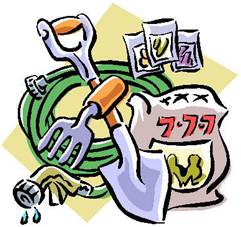How to use a WordPress real estate website to capitalize on latest trends like “Agrihoods
 Real estate professionals need to know – if you want respond to trends quickly, there are several reasons why the best way to accomplish this is with a WordPress real estate website.
Real estate professionals need to know – if you want respond to trends quickly, there are several reasons why the best way to accomplish this is with a WordPress real estate website.Here’s a good example of another home buyer trend that is starting to emerge – “agrihoods.” For this segment of the market, people are interested in real estate as a source of food. Locally home-grown food. Either from a local farm or actually growing it themselves.
Some savvy developers have taken advantage of this consumer interest and created multi-use “agrihoods.” They are basically communities that instead of dedicating acres of land for a golf course, set it aside for farming instead.
Today, not every home buyer wants to play golf on weekends. Some would rather grow lettuce.
In Illinois for example there’s a development called Serosun Farms that features more than 100 single-family homes mixed in with 160 acres of farmland. That farm provides food for residents right outside their back door. You can’t find any better farm-to-table accommodations than that.
These home owners are not only interested in fresh produce and herbs, or growing their own food, but also in the expansive open spaces that farmland creates. Serosun also provides trails, an equestrian center and fishing ponds.
To excuse the pun, here’s a great example of the “flavor of the month” for brokers and agents.
How can real estate professionals address this demand effectively? How can they do it quickly? How can they beat their competition portray themselves as the coverall-wearing, pitchfork-toting real estate company that specializes in agrihoods?
(Or any other trend for that matter – golf, yoga, equestrian, boating, etc.).
The best way to achieve this is with a very flexible WordPress-supported real estate website.
As we mentioned last week, WordPress is the platform with the most popular content management system on the planet. More than 26% of websites that display content use WordPress.
It’s super user-friendly, optimized for Search Engine Optimization high rankings on Google and Bing, and it super-customizable.
The challenge for most brokers and agents is that they are locked into websites that have very little flexibility. It’s difficult to add content. Or to create new sections. Many times they have to rely on a webmaster for this type of project. Many times that webmaster is either too busy or too expensive.
The smart thing to contact an experienced real estate website developer, such as Home Junction, to create a site built on a WordPress framework. In essence, they will carve out the land for you. You can plant the seeds (content) however you like to meet market demands.
For example, to jump on the agrihood wagon, here are some things you can do with a WordPress real estate website.
For one, a broker or agent can add agrihood-related content. Quickly.
They can blog about this new trend on an easy-to-use blog page. They can optimize the page with keywords related to agrihoods such as “neighborhood gardens” and housing/farming real estate developments.
They can even create a page on their site just dedicated to agrihood communities and make that page a prominent part of the site’s navigation.
Perhaps there are no communities such as Serosun in a particular. But there may be certain areas where people can farm their own individual plots of land.
Home Junction has a map-based real estate tool called SpatialMatch that can be embedded directly into a broker or agent’s website.
With that tool, an agent can point out areas where people can farm their own land. Or shop the local produce co-op. All in relation to the location of a home.
It goes even further. Many people don’t want to farm, but they prefer to shop at stores like Whole Foods or Trader Joes.
With a WordPress site, you can also quickly point out where these stores are located in relative terms to any property for sale.
Just like agriculture, to be successful you need the right equipment. If you are going to “farm” neighborhoods with this new “agrihood” trend (or any trend for that matter), make sure you have the right tools.
That’s how you grow a real estate business today.

